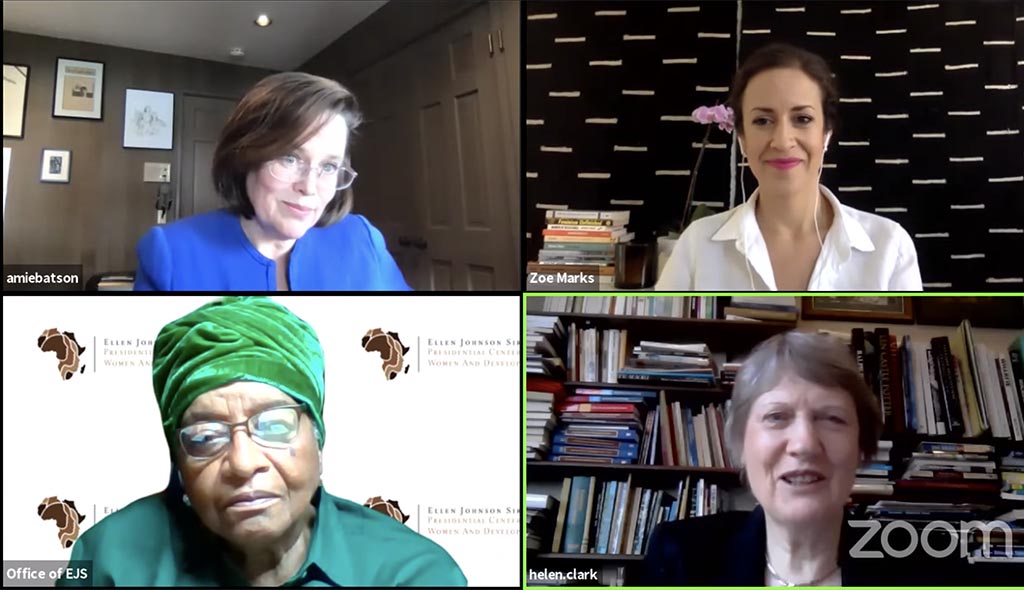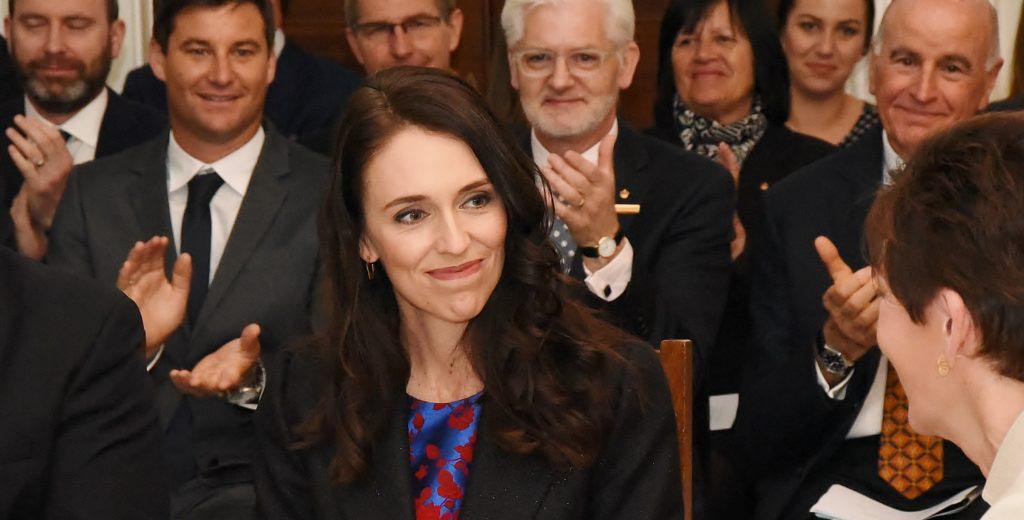Women hold only 7% of the world's government leadership roles, but several women leaders are drawing praise for their skillful navigation of the coronavirus pandemic.
In Germany, New Zealand and Taiwan -- among other countries -- women are being held up as role models on how to effectively guide countries through a public health crisis.
They've been lauded for their swift action, trust in science and ability to make difficult decisions with empathy and compassion. As a result, they've succeeded in minimizing the impact of this disease on their countries.
Just what attributes and qualities led to these successes?
That was the topic of a recent webinar hosted by WomenLift Health. The all-woman panel included a former prime minister of New Zealand, past president of Nigeria and an academic expert on the topic of gender and leadership.
"The news coming out of many countries is striking enough to take note," said Amie Batson, a Stanford employee who is executive director of WomenLift Health. "Many of the countries that are doing the best are led by women."
Reports from The New York Times, the Washington Post, CNN and USA Today have all highlighted the success of women leaders who have minimized deaths from COVID-19 in their countries by making hard decisions and inspiring the support of their communities, Batson said. "These women leaders have been hailed as 'voices of reason' amid the coronavirus chaos," she said.
Their approaches have been effective, the panelists said, because they incorporate empathy and compassion, preparedness and an ability to collaborate and listen before making policy decisions. Most importantly, they said, these women leaders know how to inspire their populations to make the necessary sacrifices to control COVID-19 outbreaks.
"It looks as though women leaders have been able to motivate their followers," said Zoe Marks, PhD, lecturer in public policy at Harvard Kennedy School.
Marks wrote an op-ed piece for the Washington Post that attributed Germany's low COVID-19 death rate to Angela Merkel's "reasoning rather than rousing." The article also pointed to successes in other countries led by women, including Denmark, Finland, Iceland, Hong Kong and Taiwan.

During the webinar, Marks said the tendency of women leaders to be "more participatory and democratic in their leadership" made their approaches more effective. "Women are not inherently good at public health response, and men inherently weak," she said.
Panelist Helen Clark, a former prime minister of New Zealand, lauded that country's current prime minister as a role model for the future. Jacinda Ardern has been praised for her "clarity and compassion" during New Zealand's response to the pandemic, and for her early action to impose a month-long lockdown to keep deaths to a minimum.
Noting that Ardern has endured personal criticism because of her youth, gender and her status as a mother, Clark pointed out that a double standard exists for women leaders in a male-dominated world. And yet, she added, these woman have succeeded despite those obstacles.
"Our prime minister has been a phenomenon," Clark said.
Ellen Johnson Sirleaf, former president of Liberia, talked about her own experience leading that nation through an Ebola virus outbreak in 2014. She described making the difficult decision to cremate bodies to prevent spread of infection, knowing that half of the country's the population was Muslim and opposed to cremation for religious reasons.
These kinds of decisions must come from a place of compassion and understanding, in order to earn the support of the public, Sirleaf said: "I don't see any contradiction in being empathetic and compassionate and being a strong leader. That's not weakness. That's strength."
Goals from here, the panelists agreed, include capturing this moment in history, giving credit to women who are leading the way during such a monumental crisis, and learning from their successes.
"The power of women has not yet been fully tested or tapped," said Sirleaf, a winner of the Nobel Peace Prize. "We need to build towards using it more often."
Top photo by Governor-General of New Zealand of the country's prime minister, Jacinda Ardern, who has been praised for her COVID-19 leadership.




